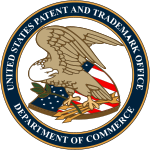- This article discusses the trademark doctrine regarding translation of foreign words. For the patent doctrine regarding equivalent means to practice an invention, see Doctrine of equivalents.

The doctrine of foreign equivalents is a rule applied in United States trademark law which requires courts and the TTAB to translate foreign words in determining whether they are registrable as trademarks, or confusingly similar with existing marks. The doctrine is intended to protect consumers within the United States from confusion or deception caused by the use of terms in different languages. In some cases, a party will use a word as a mark which is either generic or merely descriptive of the goods in a foreign language, or which shares the same meaning as an existing mark to speakers of that foreign language.